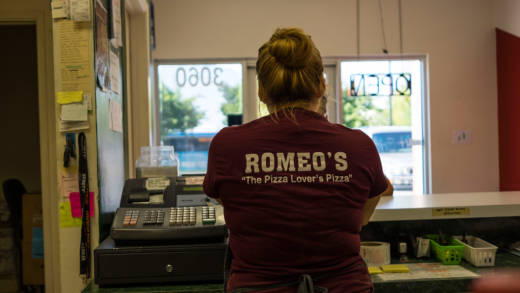Low-wage frontline workers have kept Californians fed and vulnerable populations cared for since the start of the pandemic. And they’ve borne a high cost for their work. A recent study out of UC Merced finds a 30% increase in deaths for essential workers in 2020. We’ll hear about people working in restaurants, grocery stores, home care and other industries who feared losing income — or their jobs –if they took time off to recover from COVID-19. And as the state moves toward a full reopening next month, we’ll look at lessons learned during the pandemic on how we can better protect and support low-wage frontline workers.
Lessons From the Pandemic on How to Protect and Support Essential Workers
52:42

Young Fresno mom Guadalupe Beltran got a job and got off welfare, but 5 years later she's still not making enough to get by without food stamps. (Vanessa Rancano/KQED)
Guests:
Susan Dovi, staff attorney, California Department of Labor
Alejandra Domenzain, coordinator of public programs, Labor Occupational Health Program, UC Berkeley
Stanley Edwards, essential worker in a San Francisco homeless shelter
John Kabateck, state director, National Federation of Independent Business
Sponsored